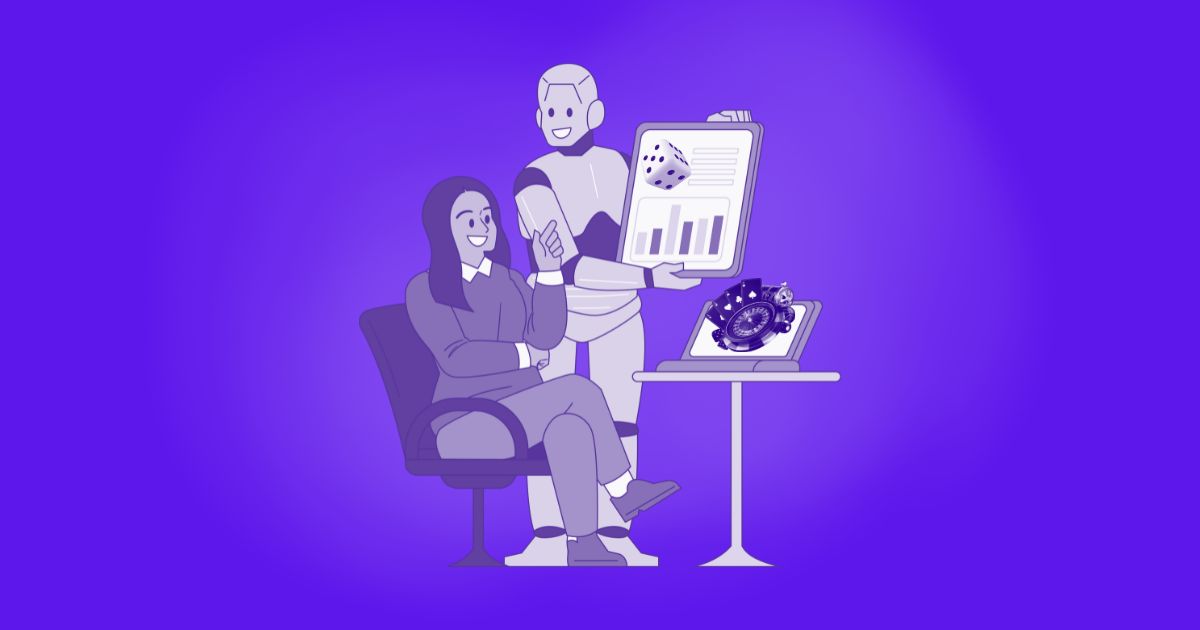Disclaimer:
This article is intended for informational purposes only and does not promote or encourage gambling. Gambling can be addictive and may lead to financial or psychological harm. Readers are advised to gamble responsibly and within their means. If you or someone you know is experiencing problems related to gambling, please seek help from a qualified professional or contact a gambling addiction helpline in your region. The views expressed here do not constitute legal, financial, or medical advice.
The end of chance? Does AI threaten the very essence of gambling, the unpredictability of the outcome?
In a gambling game, someone usually plays against someone else. Either a player against another player, or a player against a dealer—that is, against a merchant, the casino.

Some people believe that casinos try to rob players of their deposits as much as possible, but this is not true. Casinos try to return most of the deposit to the player and keep only a small percentage as profit. After all, many players have a habit of returning their returned deposits back into the system, so stability and control are important for a gambling operator. And of course, the volume of games. Since gambling is rapidly moving into the digital world, companies are enlisting artificial intelligence to help.
Artificial intelligence turns everything upside down. Every word a computer generates for you in an AI application is actually a big guess. But in gambling games, scripting programs have always worked—that is, those where there was no chance.
Fear of AI
Artificial intelligence changes the rules of the game. Slot machines have always worked on the principle of random numbers. But in computers, where everything was based on ones and zeros until now, nothing is completely random. Rather, randomness is simulated using complex calculations.
So the numbers on the machine are not completely random, but finding out what the next ones will be is almost impossible. It’s like trying to guess a secret password using the best computer; it would take ages. After the AI revolution (and maybe even the bursting of some of those bubbles), we await the quantum computer revolution in the future. That will be the real chance.
Generating text (by LLMs) using large language models is based on complex calculations and random processes. In casinos, however, randomness is strictly controlled. But if everything can be calculated, what does that mean for gambling? Where is the basis for randomness? Is artificial intelligence changing the very nature of gambling?
At This Point, We Have Strayed a Little Into the Philosophical Realm.
What AI in the gambling industry really does is track player behavior. That’s what algorithms have been trying to do for 20 years. But now we have predictive AI. When you play online, computers are constantly watching you. They know when you play, how much you play, and even what moods you’re in. Thanks to this, they can offer you exactly what you might like. Online casinos take advantage of this and add various helpers to the games to make the game even better. But the most important thing is to find a game that you enjoy.
Thanks to its ability to analyze vast amounts of data, AI can accurately identify individual player preferences and suggest personalized offers to them. In addition, AI is able to detect suspicious activity, thus protecting casinos from fraudsters. In the future, AI could completely replace live dealers and provide players with an even more realistic gaming experience. Personalized virtual assistants are now the norm, even if we don’t necessarily see them in the form of chatbots, for example.
Personalized games sound great, but they can be dangerous. Computers can know us so well that they can easily trick us into playing more than is healthy. That’s why we need new rules that protect players while allowing casinos to do business. We need to ensure that computers help, not harm.
There is a concern that artificial intelligence could increase the risk of pathological gambling by making players even more addicted to the game. That’s why it’s essential to introduce regulatory mechanisms that protect players while allowing casinos to exploit the potential of artificial intelligence. Such mechanisms should aim to identify players at risk of addiction and to prevent manipulative practices.